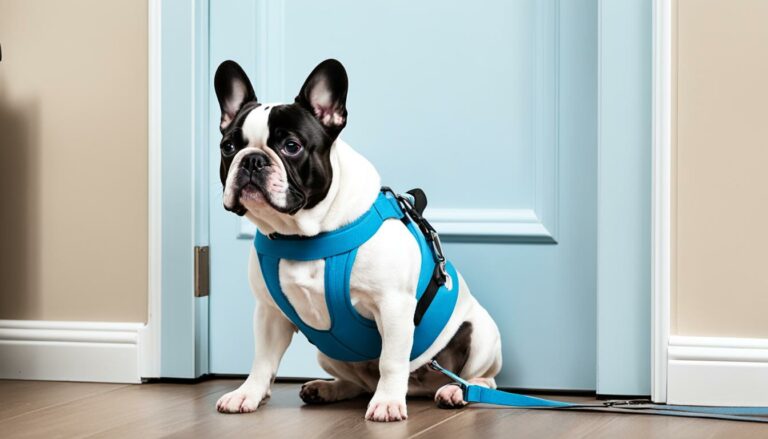French Bulldog ownership is subject to various laws and regulations that aim to ensure the welfare and safety of both the dog and the community. These laws vary depending on the country and even within different regions or municipalities. It is crucial for prospective French Bulldog owners to familiarize themselves with the specific laws and regulations that apply to their area to avoid any legal issues or penalties.
One key aspect of understanding the laws surrounding French Bulldog ownership is researching breed-specific legislation and restrictions. Some places have implemented laws that regulate the ownership of certain breeds, including French Bulldogs, due to concerns about their behavior or potential risks. These regulations may include restrictions on ownership, mandatory muzzling or leashing, or even outright bans in some cases. Therefore, it is essential for individuals considering owning a French Bulldog to investigate if any breed-specific legislation exists in their area to determine if they can legally keep the breed as a pet.
Researching Breed-Specific Legislation and Restrictions

Breed-specific legislation (BSL) refers to laws and regulations that target specific dog breeds, including French Bulldogs, due to perceived concerns about their safety or behavior. It is essential for potential French Bulldog owners to thoroughly research BSL and restrictions that may exist in their area before bringing home a new furry friend.
When researching BSL, it is crucial to understand the specific limitations and requirements imposed on French Bulldog ownership. Some locations may have outright bans on certain breeds, while others impose strict regulations such as mandatory muzzling or leash requirements in public spaces. By familiarizing themselves with these restrictions, future owners can ensure compliance with the law and take appropriate measures to provide a safe environment for both their French Bulldog and the community
Licensing and Registration Requirements for French Bulldogs in Your Area
Licensing and registration requirements for French Bulldogs vary in different areas to ensure responsible ownership and protect the welfare of these beloved pets. Most jurisdictions require French Bulldog owners to obtain a license for their furry companions. This process typically involves filling out an application with relevant information about the dog, such as its breed, age, and vaccination records, and paying a fee. Licensing helps authorities keep track of French Bulldogs in the community, ensuring that they are up to date on vaccinations and can be easily identified in case of any incidents or emergencies.
Additionally, registration with local animal control or a breed-specific association may also be required in some areas. This process entails submitting documents that verify the dog’s pedigree and confirm its purebred status as a French Bulldog. Registration is valuable for breeders and those looking to participate in dog shows or other activities that require pedigree documentation. It serves as a testament to the dog’s lineage, health, and adherence to breed standards. While the licensing and registration process may involve some paperwork and fees, it ultimately contributes to the responsible ownership and well-being of French Bulldogs in your area.
Compliance with Animal Welfare and Cruelty Prevention Laws

It is imperative for all French Bulldog owners to adhere to the animal welfare and cruelty prevention laws in their respective regions. These laws are put in place to ensure the well-being and protection of animals from any form of mistreatment or neglect. Owners must understand and comply with these regulations to not only avoid legal consequences but also to provide a safe and nurturing environment for their furry companions.
In order to comply with animal welfare laws, French Bulldog owners should prioritize the basic needs of their pets, such as providing regular access to clean water, nutritious food, and appropriate shelter. Ensuring that the living conditions are hygienic and free from hazards is also essential. Furthermore, owners must pay attention to their French Bulldog’s mental and physical well-being by providing adequate exercise, socialization, and enrichment activities. Regular veterinary care, including vaccinations and preventative treatments, is another crucial aspect of responsible pet ownership. By following these guidelines, owners can demonstrate their commitment to animal welfare and contribute to the overall welfare of French Bulldogs in their community.
Liability and Insurance Considerations for French Bulldog Owners
French Bulldog owners need to carefully consider liability and insurance matters in order to protect themselves and their beloved pets. Given the breed’s unique physical characteristics, there is a higher risk of health complications and accidents, making it crucial to have appropriate insurance coverage. Liability insurance is especially important as it provides financial protection in case your French Bulldog causes injury or property damage to others. It is advisable to consult with insurance providers specialized in pet ownership to ensure you have sufficient coverage that addresses specific risks associated with French Bulldogs.
In addition to liability insurance, owners should also explore other forms of insurance that may benefit them and their pets. Pet health insurance can help offset the costs of medical treatments, vaccinations, and routine check-ups for your French Bulldog. This particular breed is prone to certain health issues, such as respiratory problems and joint disorders, which may require regular and costly veterinary care. Being prepared and having suitable insurance coverage can go a long way in providing the care necessary to keep your French Bulldog healthy and happy.
Navigating Breed-Specific Health and Genetic Testing Requirements

French Bulldogs are known for their unique genetic predispositions to certain health conditions, which makes navigating breed-specific health and genetic testing requirements crucial for responsible owners. One of the most common health concerns in French Bulldogs is brachycephalic airway syndrome, which can cause breathing difficulties and other respiratory issues. As a result, many countries and organizations have implemented mandatory genetic testing to identify dogs that may be affected by this condition or other hereditary diseases.
In addition to brachycephalic airway syndrome, French Bulldogs are also prone to eye disorders such as cataracts and cherry eye, as well as joint problems like hip dysplasia. To ensure the overall health and well-being of French Bulldogs, breeders and owners must adhere to health testing protocols recommended by breed clubs and veterinary associations. These tests typically include evaluations for respiratory function, eye examinations, and radiographic screening for joint abnormalities. By following these breed-specific health requirements, responsible owners can help minimize the risk of passing on hereditary conditions to future generations of French Bulldogs.
Microchipping and Identification for French Bulldogs
Microchipping is an essential aspect of responsible pet ownership, and it is especially important for French Bulldogs. Microchips are tiny implants that contain a unique identification number, which can be scanned by veterinarians, animal control officers, and animal shelters. By having your French Bulldog microchipped, you increase the chances of being reunited with them if they ever become lost or stray. Additionally, many countries and states have regulations that mandate microchipping for certain dog breeds, including French Bulldogs, as a means of ensuring proper identification and reducing pet theft.
Alongside microchipping, it is also crucial to ensure that your French Bulldog wears a collar with identification tags. This simple measure can provide immediate identification if your dog is found by someone who may not have access to a microchip scanner. The identification tag should include your name, phone number, and perhaps even your address. By having this information clearly displayed, you maximize the chances that someone will be able to contact you promptly if your French Bulldog is ever lost or inadvertently wanders off. Remember to regularly update the contact details on the tags, especially if you move or change phone numbers.
Responsible Breeding Practices and Legal Obligations

Breeding French Bulldogs is a responsibility that comes with legal obligations. As a breeder, it is important to prioritize the health and well-being of the dogs and to ensure that each breeding is done responsibly. This includes conducting genetic testing to screen for potential hereditary diseases and conditions, and selecting breeding pairs with care to avoid passing on any detrimental traits.
In many countries, there are specific laws and regulations that govern breeding practices to protect the welfare of animals. Breeding dogs without adhering to these regulations can lead to legal consequences, including fines and restrictions on future breeding activities. It is essential for breeders to familiarize themselves with these laws and follow them diligently to maintain their integrity and the integrity of the breed. By adopting responsible breeding practices and meeting legal obligations, breeders can contribute to the overall health and quality of the French Bulldog population.
Importing and Exporting French Bulldogs: Legal Considerations
When it comes to importing or exporting French Bulldogs, there are several legal considerations that must be taken into account. One of the first things you need to consider is the import/export regulations of the specific country you are intending to bring your French Bulldog to or from. Different countries have different rules and requirements when it comes to importing or exporting animals, so it’s important to research and comply with these regulations to ensure a smooth process.
In addition to meeting the import/export regulations of the countries involved, it’s also crucial to consider the health and vaccination requirements. Many countries require that animals be up-to-date on their vaccinations and have a health certificate from a licensed veterinarian. This helps to ensure that the animal is healthy and does not pose a risk to the country’s existing population of animals. It’s important to consult with your veterinarian and understand the specific requirements of the country you are dealing with to ensure compliance and avoid any complications during the import/export process.
• Research and comply with the import/export regulations of the specific country involved
• Ensure that your French Bulldog is up-to-date on vaccinations
• Obtain a health certificate from a licensed veterinarian
• Consult with your veterinarian to understand the specific requirements of the country you are dealing with
Traveling with Your French Bulldog: Legal and Safety Requirements
When traveling with your French Bulldog, it is important to be aware of the legal and safety requirements that come with taking them on the road. Firstly, familiarize yourself with the specific regulations and laws regarding pet transportation in your area. Some countries or states may require certain documentation such as health certificates, proof of vaccinations, or microchip identification for your French Bulldog. It is crucial to adhere to these requirements to ensure a smooth and hassle-free journey.
Additionally, prioritize the safety and comfort of your French Bulldog during travel. When traveling by car, always secure your dog in a well-ventilated crate or use a seat belt harness specifically designed for pets. This will prevent any unnecessary movement or potential injuries in case of sudden stops or accidents. Remember to never leave your French Bulldog alone in a parked vehicle, as temperatures can rise quickly even on mild days, leading to heatstroke or other health issues. By following these legal and safety requirements, you can ensure a pleasant and stress-free journey for both you and your four-legged companion.
Understanding Noise and Nuisance Laws Related to French Bulldog Ownership
Excessive noise from pets can be a source of annoyance for neighbors and can potentially lead to legal consequences for the owner. This is particularly relevant for French Bulldog owners, as these adorable yet vocal dogs can sometimes be prone to barking. Understanding the noise and nuisance laws related to French Bulldog ownership is crucial to ensure a peaceful coexistence with neighbors and avoid any legal issues.
Many jurisdictions have specific regulations in place to address noise disturbances caused by pets. These laws typically define what constitutes excessive noise, the time periods during which noise is prohibited or restricted, and the steps that need to be taken by owners to control and reduce noise disturbances. It is important for French Bulldog owners to familiarize themselves with these laws and proactively take measures to prevent excessive barking or other noise-related issues. This can include training and socializing their pets, using noise-cancelling devices or techniques, or seeking professional help from trainers or behaviorists if necessary.
Dealing with Neighbor Disputes and Legal Issues Concerning Your French Bulldog
Having a French Bulldog as a pet can bring much joy and companionship to your life. However, like any other pet owner, you may encounter neighbor disputes or legal issues concerning your furry friend. It is important to handle these situations with care and understanding to maintain a positive relationship with your neighbors and abide by the legal regulations.
One common neighbor dispute that may arise is excessive barking. French Bulldogs, like many other dog breeds, are known to be vocal. However, if your neighbor complains about the noise, it is essential to address the issue promptly. Start by identifying the cause of your dog’s barking and take actions to minimize it. This may involve providing adequate mental and physical stimulation, training your French Bulldog to be quiet on command, or utilizing noise-cancelling devices. Open and respectful communication with your neighbor can help resolve the problem and prevent legal complications.
Another legal issue that might arise is if your French Bulldog causes damage or injury to someone or their property. Accidents can happen, and it is your responsibility as a dog owner to ensure your pet does not pose any harm to others. Keep your French Bulldog properly restrained on a leash when outside of your property and provide appropriate training and socialization. Additionally, having liability insurance can protect you financially in case of any unforeseen incidents. Taking these precautions will not only prevent legal issues but also ensure the safety and well-being of your French Bulldog and those around you.
Legal Consequences of Irresponsible Ownership and Neglect for French Bulldogs
French Bulldogs may be cute and cuddly, but being a responsible owner is crucial to avoid legal consequences. Neglecting the needs of your French Bulldog, such as failing to provide proper food, water, shelter, and veterinary care, can result in serious legal ramifications. Animal welfare laws aim to protect the well-being of animals, and neglecting your French Bulldog can lead to charges of animal cruelty or neglect.
Irresponsible ownership of a French Bulldog can also result in legal consequences. This includes allowing your dog to roam unleashed in public areas, causing harm or injury to others or their property. Similarly, failing to properly train and control your French Bulldog, leading to aggressive behavior towards humans or other animals, can result in lawsuits and legal liabilities. It’s essential to understand and comply with local laws and regulations to avoid these legal pitfalls and ensure the safety and well-being of both your French Bulldog and those around you.
What are the laws and regulations surrounding French Bulldog ownership?
The laws and regulations regarding French Bulldog ownership may vary depending on your location. It is important to research and familiarize yourself with the specific laws and regulations in your area.
Are there any breed-specific legislation and restrictions for French Bulldogs?
Some areas may have breed-specific legislation and restrictions for certain dog breeds, including French Bulldogs. It is crucial to understand and comply with any such laws or regulations that may be in place.
What are the licensing and registration requirements for French Bulldogs?
Licensing and registration requirements for French Bulldogs can also vary by location. Contact your local authorities or animal control to understand the specific requirements for licensing and registering your French Bulldog.
How can I ensure compliance with animal welfare and cruelty prevention laws?
To comply with animal welfare and cruelty prevention laws, provide proper care, shelter, nutrition, and medical attention to your French Bulldog. Avoid any actions that could be considered neglect or cruelty.
Are there liability and insurance considerations for French Bulldog owners?
Yes, as a French Bulldog owner, you may be liable for any damages or injuries caused by your dog. It is advisable to have appropriate liability insurance coverage to protect yourself in case of any unfortunate incidents.
Do I need to navigate breed-specific health and genetic testing requirements for my French Bulldog?
Some jurisdictions may require specific health and genetic testing for certain dog breeds, including French Bulldogs. Check with your local authorities or breed-specific organizations to understand the testing requirements and comply accordingly.
Do I need to microchip and identify my French Bulldog?
Microchipping and proper identification of your French Bulldog may be mandatory in some areas. Ensure that your French Bulldog is microchipped and properly identified as per the local regulations.
What are the legal obligations for responsible breeding practices?
Responsible breeding practices involve complying with breeding laws and regulations, ensuring the health and welfare of the dogs, and avoiding any unethical or illegal breeding practices.
What legal considerations should I keep in mind when importing or exporting French Bulldogs?
Importing or exporting French Bulldogs may involve specific legal requirements, such as health certificates, quarantine periods, or breed-specific regulations. Research and comply with the relevant laws and regulations when transporting your French Bulldog across borders.
What are the legal and safety requirements when traveling with my French Bulldog?
When traveling with your French Bulldog, you may need to comply with specific legal and safety requirements, such as ensuring proper confinement, vaccination records, and adhering to transportation regulations. Check with the relevant authorities to understand and meet these requirements.
What noise and nuisance laws are related to French Bulldog ownership?
Noise and nuisance laws regarding dog ownership apply to French Bulldogs as well. These laws typically regulate excessive barking or any disturbances caused by your dog. Understanding and following these laws is crucial to avoid legal consequences.
How can I handle neighbor disputes and legal issues concerning my French Bulldog?
If you encounter neighbor disputes or legal issues related to your French Bulldog, try to resolve them through open communication and compromise. If necessary, seek legal advice or mediation to address and resolve any disputes in a fair and lawful manner.
What are the legal consequences of irresponsible ownership and neglect?
The legal consequences of irresponsible ownership and neglect may include fines, penalties, or even criminal charges. Neglecting the well-being and care of your French Bulldog can lead to severe legal repercussions.
Hi, I’m Alex! At FrenchyFab.com, I share my expertise and love for French Bulldogs. Dive in for top-notch grooming, nutrition, and health care tips to keep your Frenchie thriving.



